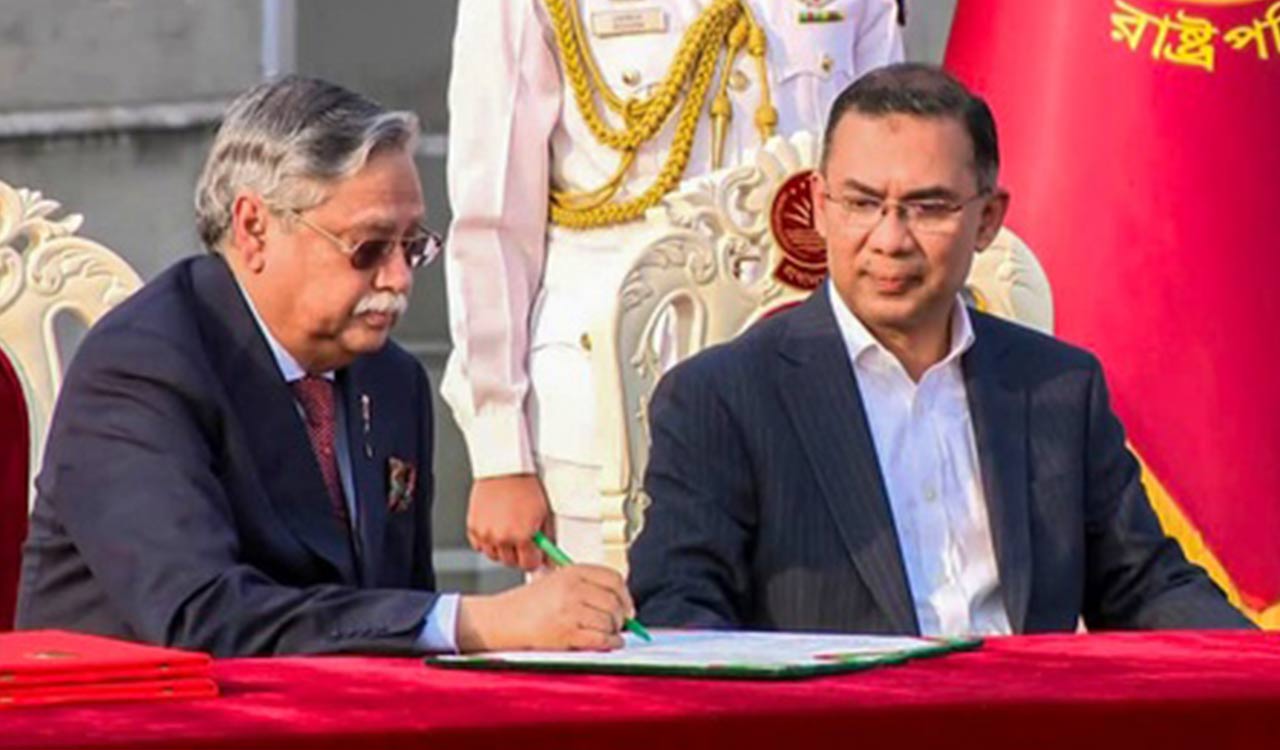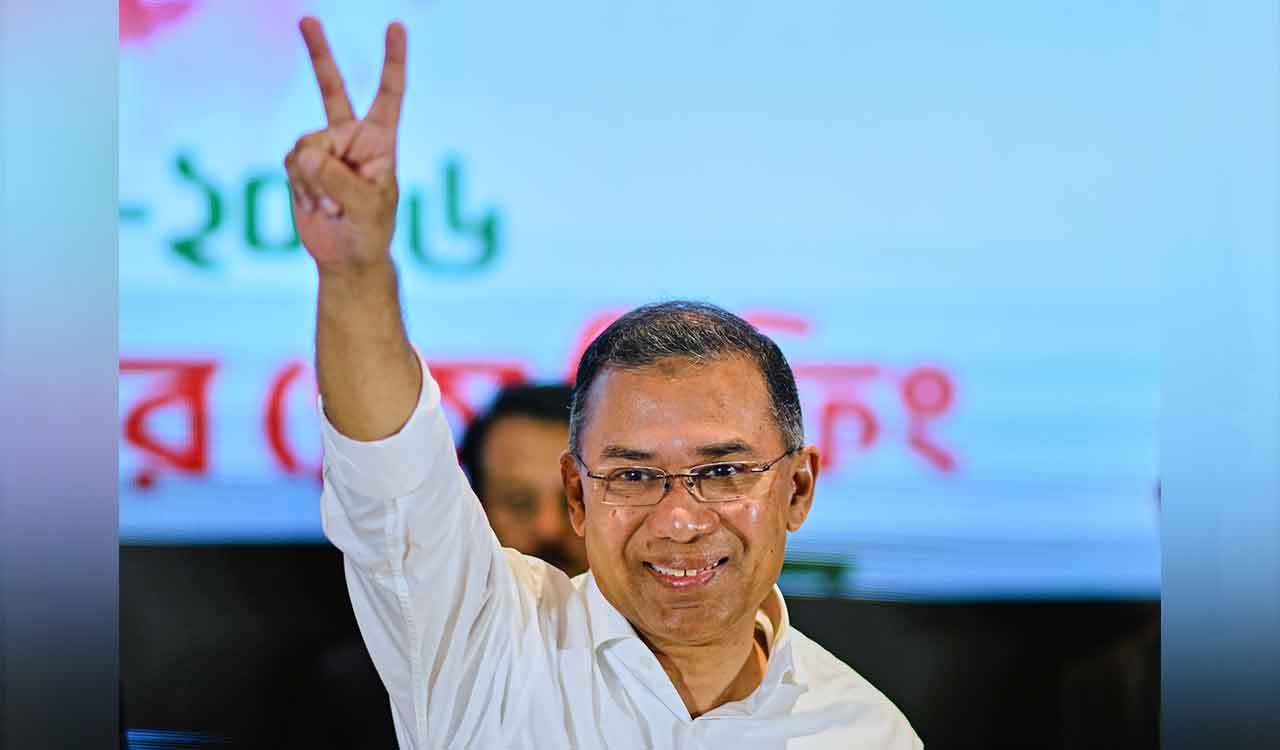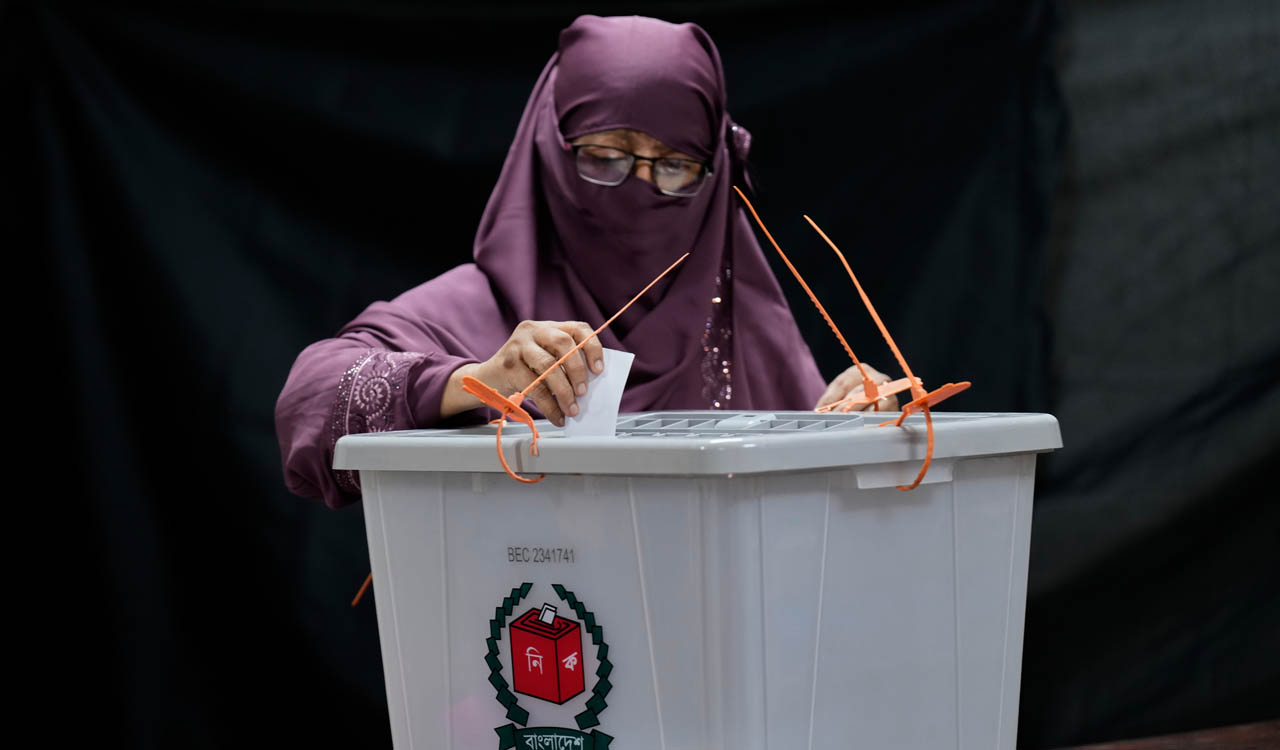Opinion: Democratic deficit in Bangladesh
Hasina failed to cash in on the progress, especially made during her second stint as Prime Minister
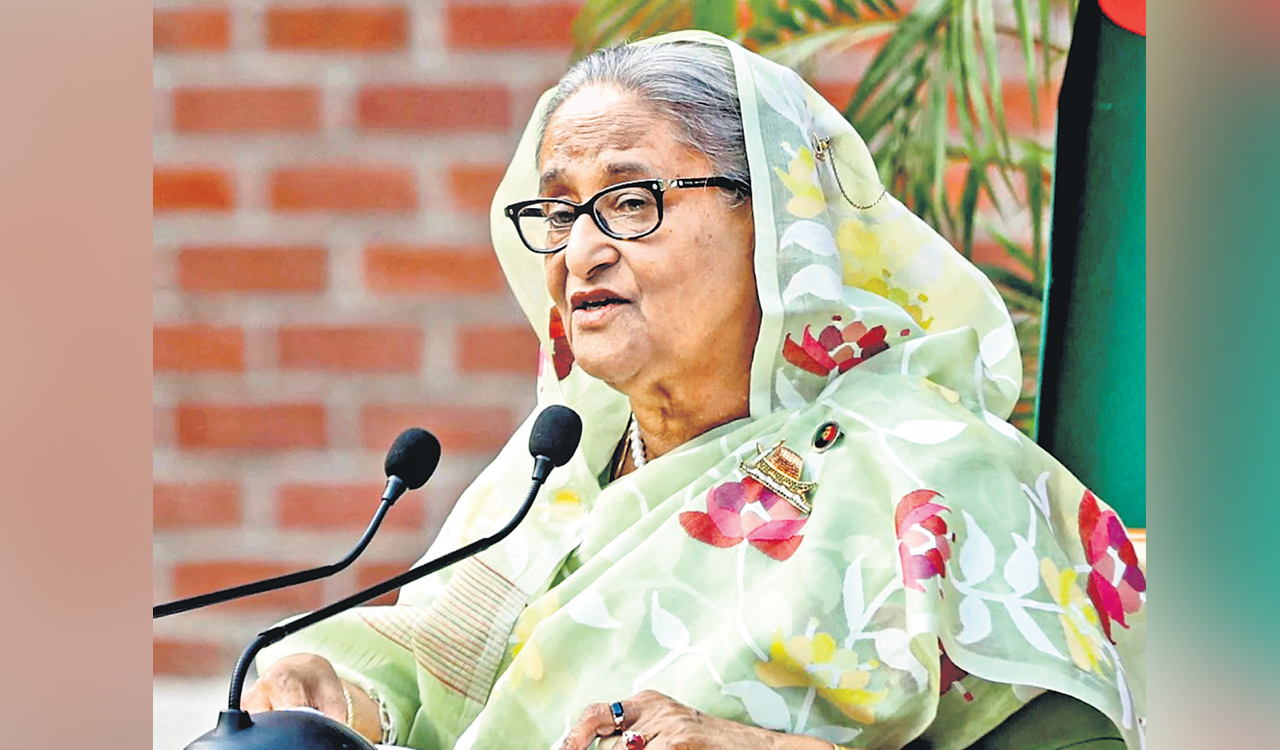
By Geetartha Pathak
What the entire opposition of Bangladesh could not do for more than one decade, the students did that by compelling ousted Prime Minister Sheikh Hasina to resign and flee the country. Hasina resigned following month-long protests by students against government job quotas (reserving 30% of civil service posts for descendants of people who fought the 1971 war for independence). The demonstrations turned violent after a government crackdown and attacks by groups linked to the Hasina’s Awami League party. The violence that erupted on August 4 and 5, ended the 15-year rule of the Sheikh Hasina government.
Hasina failed to acknowledge the resentment of students and the youth in the country. She said those who were carrying out the violence were not students but terrorists out to destabilise the country. The Awami League government said the protesters were Razakars, a term the Hasina government used to denote all collaborators of the Pakistani forces. This includes leaders of the Bangladesh Jamaat-e-Islami, members of the East Pakistan Central Peace Committee.
Disconnect with People
Although the violence, looting, arsons and damage to public properties could be explained as a result of incitation by Islamic radical forces, Pakistan and China, the massive turnout of people on the roads and their euphoria after Hasina fled the country suggest a spontaneous outburst of the grievances of the people against the government. The Hasina government failed to understand the feelings of the people. According to reports in a section of Indian media, the involvement of Islami Chhatra Shibir (ICS), the student wing of Bangladesh Jamaat-e-Islami, in converting protests over quotas was aimed at establishing a regime favourable to Pakistan and China, undermining the previously installed Awami League government. Obviously, the forces inimical to India will try to exploit the development in Bangladesh. Yet, India should realise the Hasina government’s highhandedness and arrogance in dealing with internal conflicts and social issues of the country which were responsible for the worsening of the situation.
There were reports of intimidation and attacks on minorities, particularly on Hindus, by some Islamic fundamental elements soon after the fall of the Hasina government. Portraying Hasina as the saviour of Hindus and pro-India and her predecessor incumbent as anti-minority and not pro-India if not anti-India by Indian leaders will not be a diplomatically wise step as India’s friendly relations with Bangladesh are crucial for its geopolitical security.
Widespread Corruption
During this writer’s visit to the country in the third week of April, it was observed that the common people, including local journalists, were openly discussing widespread corruption in every wing of the government. The irony is that the Hasina government had jailed the main opposition leader of BNP Khaled Zia for her conviction in cases of corruption in 2018 and barred her from contesting elections. Significantly, the President of Bangladesh Mohammed Shahabuddin on August 5 ordered the release of prisoners from the protests, including 78-year-old former Prime Minister Khaleda Zia.
The Indo-Bangla Journalists Forum, a bilateral body of journalists of the two countries, had organised several meetings on both sides of the borders on exchanging views relating to coverages of bilateral issues and culture and people-to-people contact for better understanding of issues beyond the political rhetoric. The contentious issues of illegal infiltration of Bangladeshi nationals to India, sharing of river water, killing of people by the Border Security Forces of India and trade parity etc were reported by the journalists of both countries pragmatically. Most of the journalists of Bangladesh opined that the two countries cannot afford to disturb the friendly relationship, irrespective of who is in power in both countries. Hasina continued her friendly relationship with India even after the BJP came to power in India in 2014 usurping the Congress-led UPA government. Therefore, with the same spirit, India cannot change its friendly attitude towards the new government of Bangladesh.
Downslide
Hasina became the Prime Minister of Bangladesh for the first time after her Awami League party won the 1996 elections. Her second stint in power began in 2009. It is true that the country made massive economic progress since her second stint, but the country suffered an economic slowdown after the 2018 general election where the League secured 234 seats out of 300 with 153 seats uncontested. The pandemic also added to the economic crisis of the country. The value of Taka, the currency of Bangladesh, is facing a sharp decline against the US dollar and Indian rupee — 100 INR now is equivalent to 140 Taka. It was INR 88 against 100 Taka in 2018.
The Bangladesh Nationalist Party (BNP) alleged widespread rigging in the elections and demanded it be held under a neutral caretaker government which was turned down by the ruling party. The Awami League government through the 15th Amendment to the Constitution in 2011 removed neutral caretaker governments, which had governed during elections and government transitions. The Human Development Index of Bangladesh improved to 0.670, positioning it at 129 in 2022. Bangladesh is one of the top five countries in terms of the largest absolute gains in the HDI score during the period. India’s HDI score was 0.644 in 2022, positioning it at 134 out of 193 countries. The infant mortality rate (IMR) is declining continuously in Bangladesh. The IMR was 23.672 per thousand live births in 2021. It declined by 4.47% to 22.614 in 2022. In India, the IMR was 25.5 per thousand live births in 2022. Hence India is lagging behind Bangladesh in the IMR and HDI index.
Notwithstanding the progress made in certain key fields, the democratic deficit in the country has drawn the attention of the world. In 2021, the US Treasury Department imposed sanctions on Bangladesh’s elite paramilitary force, the Rapid Action Battalion (RAB), as well as seven of its current and former officers due to serious human rights violations. The Human Rights Watch body observed that following the US Global Magnitsky human rights sanctions against Rapid Action Battalion and some of its top commanders in December 2021, extrajudicial killings and enforced disappearances dropped dramatically, indicating that authorities have the ability to bring security force abuses under control.
However, instead of taking steps toward reform, authorities launched a campaign of threats and intimidation against human rights defenders and families of victims of enforced disappearances. In 2023, the opposition alleged that the Bangladesh authorities tightened repression ahead of national elections. Security forces carried out mass arrests of opposition members. The arrests appeared to reflect senior police officials’ plans, stated in a leaked meeting minute, to ensure the convictions of opposition members so they would be disqualified from contesting elections. At the invitation of the President, military leaders and student leaders, Muhammad Yunus, the Nobel Laureate Professor, agreed to lead the interim government.
The ouster of two heads of the nation in South Asia — former President of Sri Lanka Gotabaya Rajapaksa two years ago and in the present case, Sheikh Hasina by the unprecedented uprising of citizens — sends grave warnings for those governments which impose wanton curb on democratic and fundamental rights of citizenry.
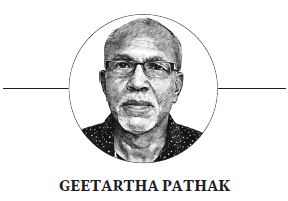
(The author is a senior journalist from Assam)
Related News
-
FDDI introduces new UG, PG programmes across schools
3 hours ago -
Harish Rao to visit illegal quarry in Neopolis on Thursday
3 hours ago -
Holi celebrated with enthusiasm in Kothagudem, Warangal
3 hours ago -
BRS leaders come to the rescue of Velugumatla displaced families
3 hours ago -
Allen crushes South Africa dreams with record century, Kiwis storm into T20 World Cup final
3 hours ago -
Congress councillor disqualified in Isnapur Municipality for voting against party whip
3 hours ago -
KTR condemns civilian deaths following Israel-US bombing in Iran
3 hours ago -
Podu farmers clash with forest staff in Telangana’s Aswaraopet
3 hours ago

